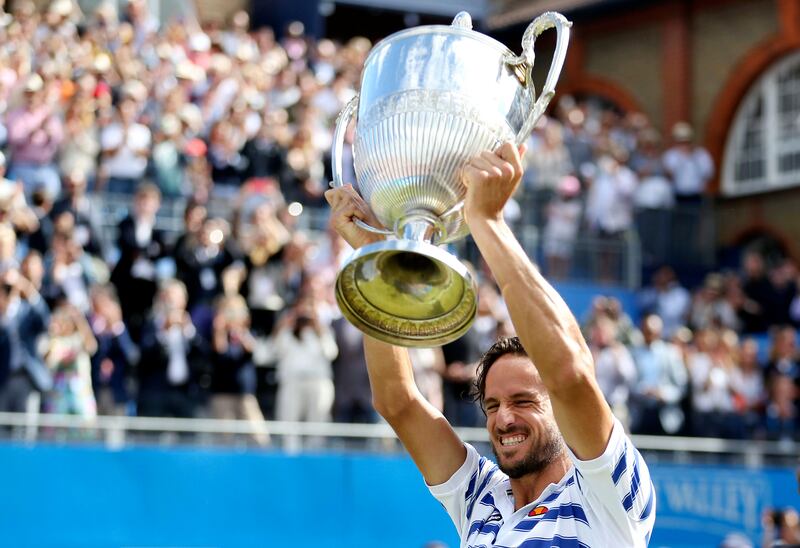Feliciano Lopez, the winner of the Queen's Club Championship on Sunday, believes he has the potential to challenge at Wimbledon, which starts next Monday. But it is not often that the winner at Queen's goes on to win the grand slam title. Here is a look at the last five men to complete the double on grass.
Andy Murray
The world No 1 has prevailed twice at Wimbledon and on both occasions, last year and in 2013 he went into the third grand slam of the season with the confidence of a Queen's title behind him. In 2016 he came from behind to beat Canadian Milos Raonic in the final, and that would prove fitting as it would be Raonic he would beat in the Wimbledon final three weeks later. In 2013, it was Marin Cilic he would beat at Queen's, and he went on to beat Novak Djokovic in the final at Wimbledon. However, winning Queen's is no guarantee of success, as Murray also won it in 2009, 2011 and 2015 and did not prevail in any of those years.
Rafael Nadal
The Spaniard had been knocking on the door of Wimbledon success as he had been beaten finalist in both the 2006 and 2007 finals at Wimbledon. But a successful week at Queen's in 2008 where he got past grass-court specialists such as Ivo Karlovic and Andy Roddick, before beating Djokovic in the final in straight sets, set him up to be third time lucky at Wimbledon as he finally got the better of Roger Federer in the final, winning a classic final 6-4, 6-4, 6-7, 6-7, 9-7 to claim the first of the two titles he has won at SW19, the second coming in 2010.
Lleyton Hewitt
The Australian was the dominant player in the game in the summer of 2002 in the spell that ran between the decline of Pete Sampras and the rise of Federer. Hewitt had already proven to be a force at Queen's, having won the 2000 and 2001 competitions, and he completed his hat-trick in 2002 as having got to the final without dropping a set, he recovered from losing the first set to Tim Henman to triumph 4-6, 6-1, 6-4. Hewitt then took that form to Wimbledon where he would win would prove to be his second, and last, major, losing only two sets all tournament as he defeated David Nalbandian in the final.
Pete Sampras
The American's record on grass really needs no introduction as his seven Wimbledon titles in eight years between 1993 and 2000 made him the most successful player in the history of the open era of tennis until Federer equalled that tally in 2012, though the Swiss's haul took 10 years to assemble. While not always a frequent competitor at Queen's, he triumphed twice there in 1995, defeating Guy Forget 7-6, 7-6, and then in 1999 when he got the better of Henman 6-7, 6-4, 6-4, and both times he went on to be the victor at Wimbledon.
Boris Becker
The German will be a feature at Wimbledon this year as a media pundit, but 32 years ago he produced one of the biggest shocks in the history of the sport when as an unheralded 17 year old he became, at the time, the youngest ever grand slam winner at the age of 17 years and 227 days. But, those paying attention would not have been surprised by the development as the previous month in June 1985 he was the winner at Queen's. Seeded 11th he defeated American Johan Kriek 6-2, 6-3 in the final to underline his potential on grass.





